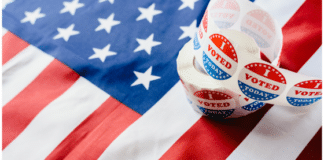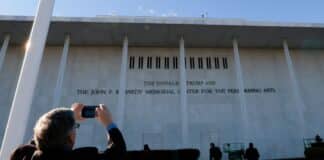Canada’s 2025 federal election delivered a stunning upset as the Liberal Party, led by Mark Carney, retained power despite trailing in polls just months prior. The Conservative Party, under Pierre Poilievre, suffered a significant defeat, losing key seats in the Canadian parliament —including Poilievre’s own—due in large part to backlash against U.S. President Donald Trump’s aggressive trade policies and annexation rhetoric.
In early 2025, President Trump imposed heavy tariffs on Canadian goods, citing unfounded claims about fentanyl imports. He further inflamed tensions by referring to Canadian Prime Minister Justin Trudeau as “Governor Trudeau” and suggesting Canada could become the “51st state.” These actions sparked a surge of nationalist sentiment among Canadian voters, who viewed the moves as direct threats to their sovereignty.
Prior to these comments, Poilievre and the Conservative Party maintained a significant lead throughout much of 2024. Polling from early December showed the conservative leader and his party up 22 points over the Liberal Party. Belief that the Liberal Party’s electoral chances “were dead and buried in December” led then-Prime Minister Justin Trudeau to resign as party leader on January 6, 2025.
However, just a few months later, the Conservative Party, traditionally aligned with U.S. Republicans, found itself on the defensive. Poilievre’s campaign, mirroring Trump’s populist style, was unable to effectively distance itself from the U.S. president’s controversial remarks. Adopting slogans like “Canada First,” the Conservatives aimed to capitalize on nationalist feelings but instead alienated moderate voters wary of Trump’s influence.
Mark Carney, a former central banker with international experience, positioned himself as a stabilizing force. His campaign emphasized economic resilience and national unity, resonating with Canadians concerned about the escalating trade war and diplomatic strains with the U.S. Carney’s leadership offered a contrast to Poilievre’s confrontational approach, appealing to voters seeking steady governance amid uncertainty.
Many conservative voters voiced their frustration as polls closed Monday night. “I honestly can’t believe how some people can just forget about the complete disaster the last 10 years have been, all because of some dumb comments from Trump. We are in for a very rought few years,” Brody Raffan, a 36-year-old voter from British Columbia, told the Free Press.
President Trump acknowledged the reversal in Canadian Conservatives’ electoral fortunes. “You know, until I came along, remember that the Conservative was leading by 25 points,” he said in an interview with The Atlantic published on Monday. However, the president continued adding, “Then I was disliked by enough of the Canadians that I’ve thrown the election into a close call, right? I don’t even know if it’s a close call.”





